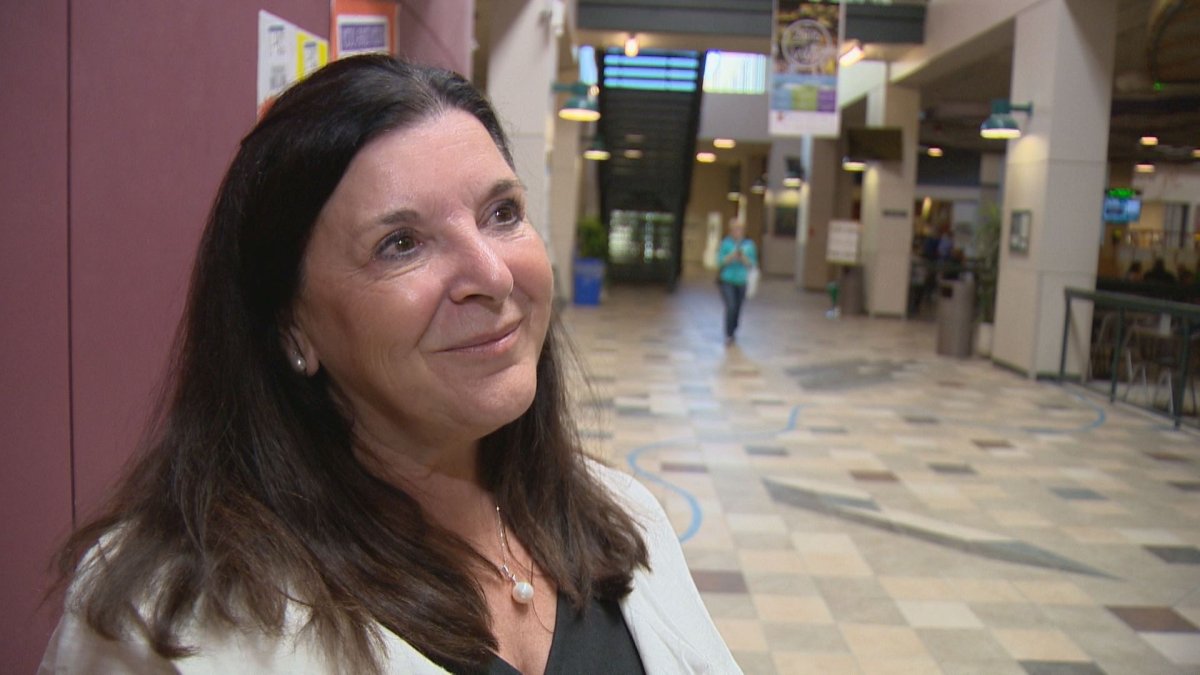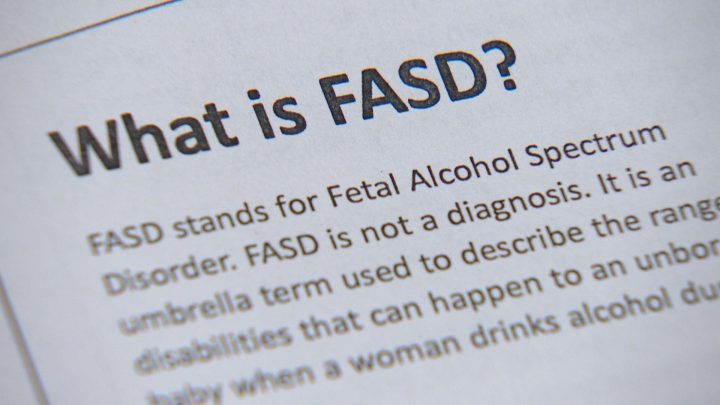University of Regina (U of R) president, Vianne Timmons, is speaking publicly about her daughter’s fetal alcohol spectrum disorder (FASD) in order to help address the stigma associated with the disability.

FASD is a neurodevelopmental disorder resulting from the consumption of alcohol during pregnancy and leads to permanent “behavioural and intellectual problems”, according to the CanFASD research network.
READ MORE: Canadian study finds over 400 new reasons not to drink while pregnant
Timmons shared her story during a national convention held at the U of R that brought families caring for people with FASD together with researchers and government officials.
Timmons, a mother of four, said Kelly struggled with reading facial expressions, understanding consequences and controlling impulses.
Timmons worked for years to support her daughter’s education through tutoring, but added that during Kelly’s time in elementary school during the 70’s, very little was known about the disorder.
“Kelly went through school with a tremendous amount of bullying. She was ostracized. She was lonely, very lonely,” she said.
Timmons said the stigmas faced by those living with the disorder extends to the parents as well. Unlike other mental disorders, FASD is preventable by abstaining from alcohol during pregnancy.
According to Timmons, her daughter was able to graduate from university and is currently employed. She said the key to helping her daughter succeed was to identify her strengths and give continuous support.
Living with fetal alcohol spectrum disorder
Motivational speaker and research consultant Myles Himmelreich was born with FASD and raised by adoptive parents.
He said he was often misunderstood as a child — his teachers regularly scolded him for bad behaviour when he was reacting to the sensory overloads associated with FASD.
“The lights are too bright, the noises are too loud, the smells are too strong. It affects your body to the point where you’re physically uncomfortable,” Himmelreich said.
Unable to fit in at school, Himmelreich fell into the “world of addictions” as a young man.
“In that world, I didn’t have to know how to read or write. There was no judgment there, all I had to do was show up with the drugs or alcohol,” he said.
In his twenties, Himmelreich was able to learn more about the disorder he was born with through attending FASD conventions. He eventually learned to control certain aspects of his life to help deal with his sensory issues.
“Understanding that my brain works differently was one of the biggest things. Once I understood that, then I understood that I can do certain things and I do have self-worth,” Himmelreich said.
Himmelreich now works as a motivational speaker and shares his story to audiences across Canada. He also conducted a health survey exploring the connection between FASD-sufferers and physical issues associated with the disorder.
A national meeting of minds
On Monday, Canada FASD Research Network (CanFASD) kicked off a national convention that brought families of people with FASD, health care professionals, researchers and government officials together for collaborative discussions that will be used for a report.
According to CanFASD executive director Audrey McFarlane, the convention addressed the “significant issues” associated with FASD, including overrepresentation of people with the disorder in the justice system, and improvements to the education system.
“We want to make sure that governments are putting their resources into programs that are evidenced,” McFarlane said.
The convention continues until Aug. 31st.







Comments